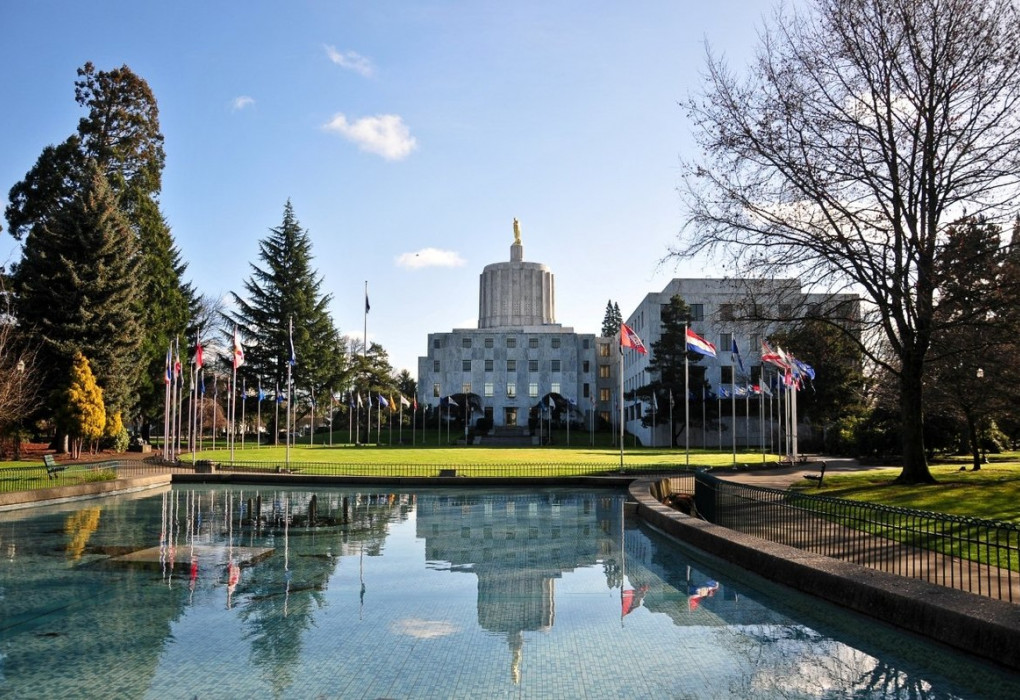2025 Legislative Roundup: Charting a Course for Wild Fish
2025 Legislative Roundup: Charting a Course for Wild Fish
The 2025 Oregon Legislative Session wrapped up with both progress and setbacks for Oregon’s wild fish and rivers. Native Fish Society actively engaged throughout the session, advocating for science-based policies and funding that support healthy watersheds and native fish.
We entered the session with three key requests:
Prioritize Wild Fish Watersheds: Direct ODFW to develop a science-based framework to prioritize funding key watersheds for wild fish production rather than hatchery production.
Pause Rock Creek Hatchery Investment: Pause investment in rebuilding Rock Creek Hatchery in the Umpqua Basin until a thorough analysis of funding options and alternatives can be completed and studied by the Oregon legislature.
Look to Coho Success: Consider the success of Oregon Coast Coho recovery as a model for fisheries management—a model which focused on habitat restoration, harvest reforms, and reduced hatchery releases and has resulted in the remarkable recovery of an iconic fish population.
The 2025 legislative session presented a complex landscape for wild fish and river advocacy. While we saw some important wins, such as the redirection of Hatchery Research Center funds and the defeat of bills that threatened habitat and river health, the continued investment in unsustainable hatchery practices and the failure of dedicated conservation funding remain challenges.
One thing is clear: we will continue to engage with policymakers and our members to ensure that Oregon prioritizes science-based, wild fish-focused management for the health of our invaluable rivers and their native inhabitants.
We thank all of you who took the time this legislative session to respond to action alerts and share with your legislators the value of our wild fish and rivers. We couldn’t have done it without you. And our advocacy continues throughout 2025 as we seek to continue to educate Oregon lawmakers and seek opportunities to chart a new course for wild fish management in the state.
~~~~~~~~~~~~~~~~~~~~~
Key Legislative Outcomes:
SB 512 - Rock Creek Hatchery Funding (Passed via HB 5006)
While SB 512 itself didn't pass as a standalone bill, its core components, including funding for Umpqua Basin hatchery programs originally associated with Rock Creek Hatchery (RCH), were ultimately included in the final "Christmas Tree" budget bill, HB 5006. This secured $1.4 million to continue the status quo for these programs for the 2025-2027 biennium, with $400,000 allocated for various studies.
We opposed this funding allocation. We believe that it is necessary to address the unsustainability of hatchery management expenses within the ODFW budget–a whopping $1 million per week is spent in Oregon just on the resources and personnel costs to raise the fish each year. However, a budget note was included within HB 5006 that specifically directs ODFW, in consultation with the Cow Creek Band of Umpqua Tribe of Indians, to report to the legislature before the 2026 session. This report must include:
Recommendations for overall hatchery operations in the Umpqua Basin based on the Hatchery Resiliency Assessment (Rock Creek Hatchery ranked dead last compared to the state’s other facilities in this assessment).
An evaluation of returning RCH to operability, including estimated initial and ongoing costs, and timeline.
An assessment of other hatchery location options in the Umpqua Basin, with estimated costs and timelines.
An assessment of available revenue streams and financial partnerships.
We are hopeful that this budget note will lead to the thorough analysis we originally sought and address the critical issues we highlighted regarding the economic and ecological sustainability of hatchery investments.
ODFW Budget (Passed)
The overall ODFW budget passed with mixed outcomes for wild fish.
Salmon River Hatchery Closure: ODFW’s budget included the closure of one state hatchery and its associated programs. However, their plans for continuing the Pacific Salmon Treaty (PST) fall Chinook indicator stock that is associated with the hatchery are still unclear.
Monitoring Cuts: Significant cuts were made to fish monitoring programs. This will impact the agency’s ability to conduct sustainable fisheries and, crucially, monitor the impacts of hatchery production on wild fish populations, limiting the ability of the department to take conservation actions to support wild fish conservation and recovery.
Rogue South Coast Plan Monitoring: On a positive note, funding for Rogue South Coast Plan monitoring was restored.
Hatchery Deferred Maintenance: A $20 million bond was approved to address a fraction of the deferred maintenance needs at state hatcheries, which number in the hundreds of millions. We continue to advocate that without a comprehensive plan for hatchery investments, the state continues to throw millions of dollars at a system that is both ecologically and economically unsustainable.
HB 2345 - Oregon Hatchery Research Center (Passed)
This bill eliminated the Oregon Hatchery Research Center and its associated board. It redirects the funds to a 50/50 split, with half dedicated to monitoring and addressing the impacts of hatcheries on native fish species and the other half for the maintenance of state-run hatcheries. We supported this bill, believing that these funds would be better spent on crucial monitoring efforts.
HB 2977 - 1% for Wildlife (Failed)
This bill aimed to increase the transient lodging tax by 1% to create a dedicated funding source for wildlife conservation, specifically focusing on species identified in the state wildlife action plan. HB 2977 came incredibly close to passage, enjoying broad bipartisan support, but was ultimately blocked by a procedural mechanism in the final hours of the session. We supported this bill as a vital step towards sustainable funding for conservation, while also continuing to advocate for reforms to ODFW’s budget to address the economically and ecologically unsustainable allocations to hatcheries.
HB 2342 - ODFW Fee Increases (Passed)
This bill increases hunting and fishing license fees to help address ODFW’s budget shortfall. ODFW argued these adjustments were necessary to maintain current service levels, cover rising operational costs (including hatchery operations), and offset flat license sales and potential federal funding reductions.
SB 221 - Fall Chinook Hatchboxes (Passed with significant modifications)
This bill creates a carve-out from existing management plans to allow the use of hatchboxes for fall Chinook salmon in Coos County. We opposed this bill, believing it is not the best use of agency resources for Coquille watershed Fall Chinook recovery. Through significant advocacy and collaboration with partners, we successfully constrained the bill's impact, reducing its potential to spill over into other geographies and affect other species.
SB 222 - Smallmouth Bass Control (Failed)
This bill sought to provide funding to ODFW to address the negative impacts of smallmouth bass on fish populations in Oregon’s coastal watersheds. We supported this effort, recognizing the growing problem of invasive smallmouth bass and the urgent need for investment in meaningful solutions. Unfortunately, the bill did not pass this session.
SB 511 - Salmon Credit Bill (Failed)
This bill aimed to create a new carve-out for development, allowing the destruction of existing habitat if replaced by habitat restoration elsewhere. We fought this bill as we believe it is paramount to protect our remaining critical habitats rather than allowing their destruction under a development "credit" system. We are pleased to report that this bill did not pass.
SB 301 - Willamette River Wake Boat Rollback (Failed)
SB 301 sought to roll back existing size limitations on wake boats in the Willamette River, specifically in the Newberg Pool. These limitations were previously established to protect adult and juvenile fish and their critical nearshore habitats. We fought this bill, concerned that larger boats would be detrimental to both fish populations and the overall health of the river. This bill did not pass.
~~~~~~~~~~~~~~~~~~~~~
What's Next?
We’re proud of what we accomplished this session - but we know there’s more work ahead. We’ll be reaching out later this summer and fall with new opportunities for you to connect with your representatives and advocate for wild fish and free-flowing rivers. Whether it’s attending a town hall, submitting an Action Alert, or joining a virtual meeting, your voice makes a difference.


